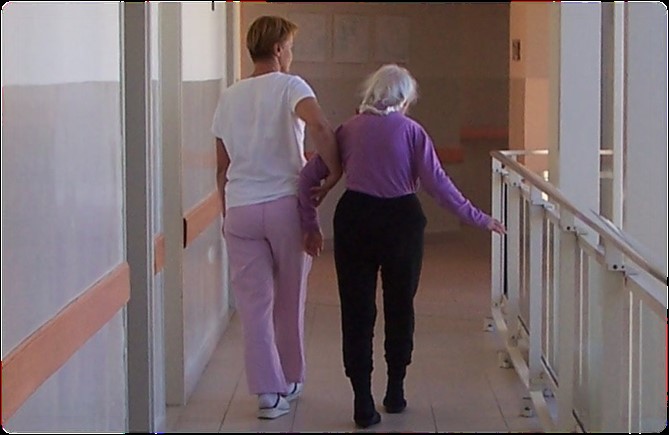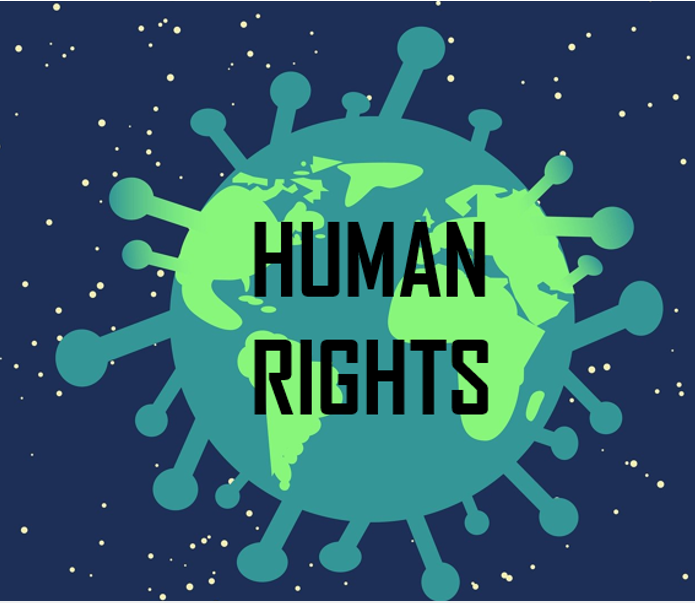Coronavirus epidemic is a test of societies, of governments, of communities and of individuals as it can only be suppressed by our joint efforts, responsibility, solidarity and cooperation. As any other emergency situation, this pandemic is inseparable from human rights – to health, life, access to information, work, education, social security, freedom of movement, privacy or peaceful assembly, and protecting them is one of the key ways to combat the largest public health challenge the modern world has ever faced.
The Office of the High Commissioner for Human Rights (OHCHR) provided an overview of the human rights in the context of the coronavirus pandemic, which you can find below.
Access to health care
- Health strategies should address not only the medical dimensions of the pandemic but also the human rights and gender-specific consequences of measures taken as part of the health response.
- Treatment should be available to everyone without discrimination, including the most vulnerable and marginalized. This means ensuring that no one is denied treatment because they lack the means to pay for it, or because stigma prevents them from getting treatment.
Emergency measures
- Governments have to take difficult decisions in response to COVID-19. International law allows emergency measures in response to significant threats – but measures should be proportionate to the evaluated risk, necessary and applied in a non-discriminatory way. This means having a specific focus and duration, and taking the least intrusive approach possible to protect public health.
- With regard to COVID-19, emergency powers must be used for legitimate public health goals, not used as basis to quash dissent or silence the work of human rights defenders or journalists. Some rights are non-derogable, including the principle of non-refoulement, the prohibition of collective expulsion, the prohibition of torture and ill-treatment, the use of arbitrary detention, and others.
- Governments should inform the affected population of what the state of emergency means, where it applies and for how long it is intended to remain in effect.
- As the crisis passes, it will be important for Governments to return life to normal and not use emergency powers to indefinitely regulate day-to-day life, recognising that the response must match the needs of different phases of this crisis.
Leaving no one behind
- All societies include people who are marginalised and face difficulties accessing public information and services for a variety of reasons, some of them reflecting entrenched discrimination or political divides. COVID-19 information and response efforts will need to take particular care to identify people who may be at risk of being missed or excluded, such as national, ethnic or religious minorities, indigenous peoples, migrants, displaced persons, and refugees, older persons, persons with disabilities, LGBTI people or people affected by extreme poverty.
- National Human Rights Institutions and civil society can assist in identifying people who may otherwise be missed or excluded, supporting the flow of information to these communities, and providing feed-back to authorities on the impact of measures on communities.
Housing
- As people are being called upon to stay at home, it is vital that Governments take urgent measures to help people without adequate housing. COVID-19 measures for staying at home and practising social distancing should reflect that this is extremely hard for some – for example people living in overcrowded conditions, homeless people, and those lacking access to water and sanitation.
- Authorities should take particular care to prevent additional people from becoming homeless – for example as people face eviction when loss of income makes it impossible to pay mortgages and rents. Good practices such as moratoriums on evictions, and deferrals of mortgage payments should be broadly replicated.
- When and where containment measures are enforced, no one should be punished because they are homeless or live in inadequate housing.
People in detention and institutions
- People deprived of their liberty, including in prisons, pre-trial detention, immigration detention, institutions, and other places of detention are at heightened risk of infection in the case of an outbreak. There is a high risk of contamination and social distancing difficult to achieve. Their situation should be specifically addressed in crisis planning and response.
- States should adopt special measures to ensure access to information, preventive and other health care for all persons deprived of their liberty, and urgently explore options for release and alternatives to detention to mitigate the risk of harm within places of detention.
Information and participation
- Relevant information on the COVID-19 pandemic and response should reach all people, without exception. This requires making information available in readily understandable formats and languages, including the visually and hearing-impaired, and reaching those with limited or no ability to read or with no internet access.
- Internet access is essential to ensuring that information reaches those affected by the virus. Governments should end any internet disruptions or shutdowns, ensure the broadest possible access to internet service.
- People have a right to participate in decision-making that affects their lives. Being open and transparent, and involving those affected in decision-making is key to ensuring people participate in measures designed to protect their own health and that of the wider population.
- Medical professionals and relevant experts, including scientists, must be able to speak freely and share information with each other and the public. Concerted efforts should be made at the international and national levels to counter false or misleading information that fuels fear and prejudice.
Stigmatisation
- The COVID-19 pandemic is generating a wave of stigma, discrimination, racism and xenophobia against certain national and ethnic groups. We need to work together to push back against this trend, including by referring to this disease as COVID-19, rather than using a geographic reference.
- Political leaders and other influential figures should speak out forcefully against the stigma and racism this crisis has generated and must at all costs avoid fuelling the fire of such discrimination. States should act quickly to counter rhetoric that stokes fear, and ensure their responses to COVID-19 do not make certain populations more vulnerable to violence and discrimination.
- The dissemination of accurate, clear and evidence-based information and awareness-raising campaigns are the most effective tools against discrimination and xenophobia, which feed on misinformation and fear. Additional efforts are needed to monitor incidents of discrimination and xenophobia, and responses to any incidents should be swift and well-publicised.
Refugees and migrants
- Migrants and refugees face particular risks, as they may be confined to camps and settlements, or living in urban areas with overcrowding, poor sanitation, and overstretched or inaccessible health services.
- Migrants and refugees often face obstacles in accessing health care, including language and cultural barriers, costs, lack of access to information, discrimination and xenophobia. Migrants in an irregular situation can be unable or unwilling to access health care or provide information on their health status because they fear or risk detention, deportation or penalties as a result of their immigration status.
- States should take specific actions to include migrants and refugees in national COVID-19 prevention and response. This should include ensuring equal access to information, testing, and health care for all migrants and refugees, regardless of their status.
- International support is urgently needed to help host countries step up services – for migrants, refugees and for local communities – and to include them, in national prevention and response arrangements. Failure to do so will endanger the health of all – and risk heightening hostility, stigma and xenophobia.
- It is also vital that any tightening of border controls, travel restrictions or limitations on freedom of movement do not prevent people who may be fleeing from war or persecution.
Social and economic impacts
- The right to education needs to be protected in the case of school closures; for example, and where possible, through online learning. Girls may be disproportionately affected, as many already face significant obstacles to go to school, and may now be expected to take on increased care work at home. Limited educational opportunities for those without access to the internet risks deepening inequalities and poverty. Girls and boys may also lose access to nutritious food and other services schools often provide.
- Good practices by governments, the public and private sector, international and national organizations to alleviate both the negative socio-economic effects of this crisis should be shared.
- The occupational health and safety of those working during this crisis, particularly health workers, should be assessed and addressed. No one should feel forced to work in conditions that unnecessarily endanger their health because they fear losing a job or a pay-check.
- Fiscal stimulus and social protection packages aimed directly at those least able to cope with the crisis are essential to mitigating the devastating consequences of the pandemic. Immediate economic relief measures such as guaranteed paid sick leave, extended unemployment benefits and universal basic income can help safeguard against the acute effects of the crisis.
Privacy
- Health monitoring includes a range of tools that track and monitor the behaviour and movements of individuals. Such surveillance and monitoring should be specifically related to and used for public health-specific aims and should be limited in both duration and scope as required in the particular situation.
Water and sanitation
- Washing hands with soap and clean water is the first line of defence against COVID-19, but 2.2 billion persons lack access to safe water services. Addressing the needs of vulnerable populations, including those with inadequate access to water, is essential to ensuring success in the global struggle against COVID-19.
- Immediate measures that can help include prohibiting water cuts to those who cannot pay water bills, providing water free of cost for the duration of the crisis to people in poverty and those affected by the upcoming economic hardship.
 Ombudswoman Submits Report 2023 Annual Report to the Croatian Parliament
Ombudswoman Submits Report 2023 Annual Report to the Croatian Parliament The Importance and Impact of Political Discourse in the Pre-Election Period
The Importance and Impact of Political Discourse in the Pre-Election Period International Conference Marks End of the Project on the EU Charter on Fundamental Rights and the Rule of Law
International Conference Marks End of the Project on the EU Charter on Fundamental Rights and the Rule of Law Parliamentary Committee on Human and National Minority Rights Votes in Favor of the Ombudswoman’s 2022 Annual Report
Parliamentary Committee on Human and National Minority Rights Votes in Favor of the Ombudswoman’s 2022 Annual Report World Homeless Day – Invisible, but also Forgotten?
World Homeless Day – Invisible, but also Forgotten? Ombudswoman to Issue Special Report on the Human Rights of Older Persons
Ombudswoman to Issue Special Report on the Human Rights of Older Persons


